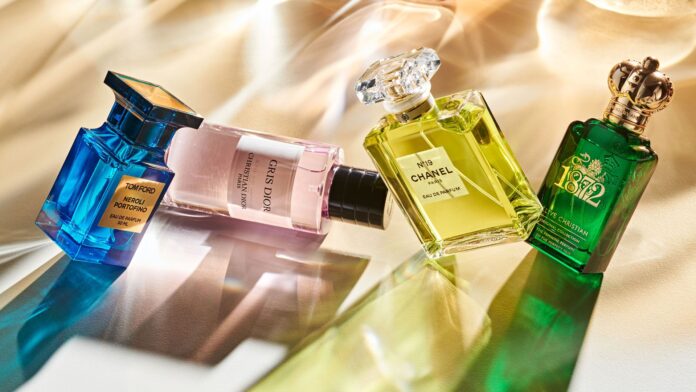Perfume has always been more than just a fragrance; it is a legacy of human culture, emotion, and identity. The world’s most authentic perfumes are those that have stood the test of time, shaped by ancient rituals, royal courts, artisanal craftsmanship, and natural ingredients. Understanding the history behind these authentic scents is essential for perfume lovers who appreciate not only aroma but also heritage. This article traces the evolution of perfume from its early origins to the masterpieces that define luxury and authenticity today.
The Origins of Authentic Scents in Ancient Civilizations
Egypt: Perfume as Ritual and Status
The history of authentic perfumes begins in ancient Egypt, where fragrance was considered sacred. Perfumes were used in religious ceremonies, embalming rituals, and daily grooming by the elite. Kyphi, one of the earliest recorded authentic scents, was made from honey, wine, myrrh, cinnamon, and other botanicals. Egyptian priests and royalty believed that fragrance connected the human soul with the divine.
Mesopotamia and Persia: The Birth of Fragrance Artistry
In Mesopotamia, perfumes were created by distilling natural oils, and early tablets reveal formulas dating back over 4,000 years. Persia followed with even more sophisticated perfume culture. The Persian Queen Shirin was said to have her own private perfume laboratory. These civilizations laid the groundwork for what we now consider authentic perfumes, grounded in skill, nature, and purpose.
Classical Influence: Greece and Rome
Perfume in Philosophy and Beauty
The Greeks admired perfume not just for its aroma but also for its symbolic meanings. Hippocrates used fragrance for healing, while philosophers like Theophrastus wrote about the essence of plants. The Romans inherited this love, with elaborate perfumed baths and oils becoming part of daily life. Authenticity was key—the best authentic scents were created from imported resins, rose petals, and herbs, blended carefully and stored in carved alabaster bottles.
Islamic Golden Age: Innovation and Distillation
Avicenna and the Invention of Steam Distillation
One of the most critical innovations in the history of authentic perfumes came from the Islamic world. In the 10th century, Persian scholar Avicenna revolutionized perfume making by inventing steam distillation. This allowed the extraction of essential oils from flowers like roses more purely and efficiently. The result was a new class of authentic scents, lighter and more refined than ever before.
Arabic Perfume Houses
Fragrance in the Arab world became synonymous with spirituality and hospitality. Oud, musk, and amber were signature ingredients. Many traditional Arabic perfumers continue to use ancient techniques to create authentic perfumes that embody regional identity and history.
European Renaissance: Perfume Crosses Borders
France and Italy: The Perfume Capitals Emerge
During the Renaissance, Catherine de Medici brought perfume to France when she married King Henry II. She employed her own perfumer from Italy, René the Florentine, who created custom authentic scents in secret passageways beneath the palace. The French court quickly embraced perfume as a symbol of sophistication and refinement.
Grasse: The Birthplace of Modern Perfumery
In the 17th century, the French town of Grasse became the global epicenter of perfume. Originally known for tanning leather gloves, the town evolved into a perfume powerhouse by using local lavender, jasmine, and roses. Artisans in Grasse developed the maceration and enfleurage methods that allowed for the capture of authentic scents from delicate flowers, ensuring purity and depth.
Royalty and Authentic Perfumes
Napoleon and Josephine: A Love Story in Scent
Napoleon Bonaparte was famously obsessed with cologne and reportedly used liters of it weekly. His wife, Josephine, adored musk-based perfumes. Their passion for fragrance led to the development of some of the most authentic perfumes of the era, crafted from rare botanicals and musk imported from Africa and Asia.
Queen Victoria and Eau de Cologne
The British royal family also influenced perfume history. Queen Victoria favored soft floral authentic scents, which popularized more delicate fragrances across Europe. Royal endorsement cemented perfume as both a luxury and a personal statement.
The Industrial Revolution: From Artisan to Industry
Commercialization and Innovation
The 19th century saw the rise of synthetic ingredients, which allowed perfumers to expand their olfactory palettes. However, true authentic perfumes continued to rely on natural materials and complex processes. Legendary houses like Guerlain and Houbigant emerged, balancing art with science to create fragrances that were both innovative and authentic.
The Role of the Nose
Perfumers, often called “noses,” became celebrities in their own right. Their ability to blend top, heart, and base notes into authentic scents became a revered craft, passed down through generations. Even as mass production grew, niche houses and luxury brands preserved tradition and integrity in perfume making.
The Modern Era: Revival of Authenticity
Niche Perfume Brands and Artisanal Revival
Today, there is a growing demand for authentic perfumes that honor heritage and craftsmanship. Niche perfume houses focus on small-batch production, rare ingredients, and storytelling. These authentic scents resonate with consumers who seek deeper meaning, sustainability, and individuality.
Sustainability and Transparency
Modern consumers want to know where ingredients come from. Ethical sourcing, cruelty-free practices, and transparency are hallmarks of contemporary authentic perfumes. Brands like Le Labo, Maison Francis Kurkdjian, and Byredo exemplify this trend—merging ancient artistry with modern values.
Conclusion: The Scent of Authenticity Through Time
The history behind the world’s most authentic perfumes is a journey through cultures, innovations, and values. From the temples of Egypt to the lavender fields of France, authentic scents have always been a mirror of humanity’s deepest expressions—love, spirituality, power, and identity. In today’s crowded fragrance market, it is the commitment to tradition, purity, and emotion that keeps these timeless perfumes alive.
Whether worn as a personal signature or gifted as a treasure, authentic perfumes are more than bottled aromas—they are pieces of history you can wear.
